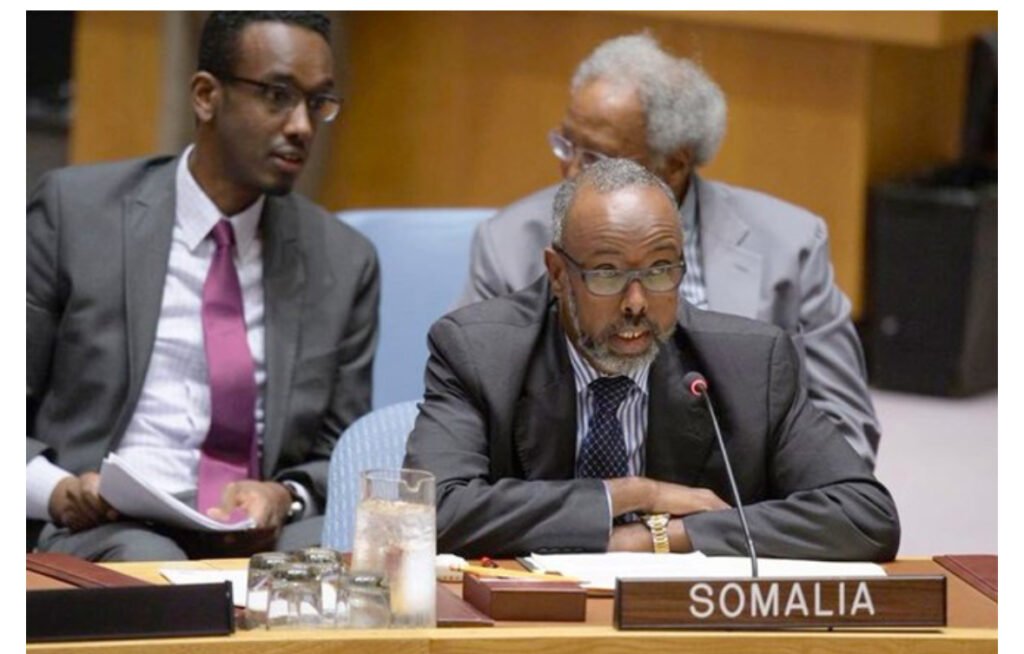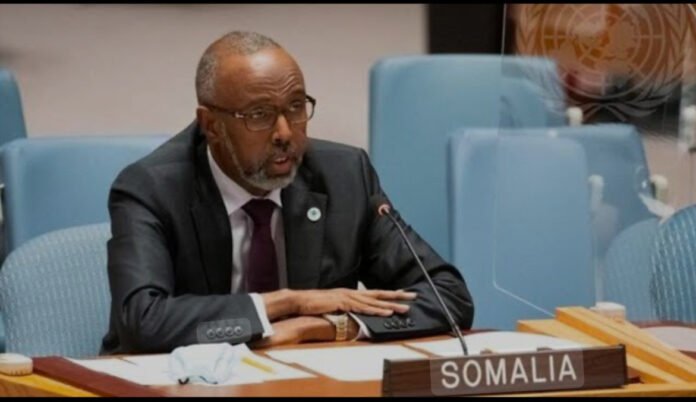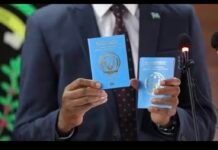By Horn Africa News
MOGADISHU – Months after winning a seat at the United Nations Security Council, Somalia officially began its two-year term as a non-permanent member on January 1, 2025, following elections held at the UN General Assembly in June 2024.

Membership in the Security Council has given Somalia a rare opportunity to have both a voice and influence in critical UN decisions, particularly on matters of peace and security.
In recent weeks, Somali diplomats at the Council have actively engaged in debates, raising their country’s position on regional peacekeeping operations, especially in relation to the African Union Support Mission in Somalia (AUSSOM). The government has also forged closer cooperation with key Council members, including the United States, the United Kingdom, France, and Russia, to advance both security and economic partnerships.
Beyond security, Somalia has used its membership to showcase its state-building efforts, counterterrorism initiatives, and governance reforms, seeking to demonstrate that the country is on a path toward recovery. The seat has also allowed Mogadishu to push for greater investment in security and infrastructure, leveraging increased dialogue with the international community.
The membership has boosted global confidence in Somalia’s diplomatic influence, ensuring its voice is heard in international decision-making. However, internal political instability, security threats, and weak state institutions continue to undermine Somalia’s ability to fully benefit from the opportunities provided by the Council seat.
While the Security Council frequently focuses on peace and security issues, Somalia itself remains one of the central topics of discussion, often limiting its ability to shift attention to broader global priorities.
So far, Somalia’s actions at the Council underscore its commitment to playing an active role in global diplomacy—strengthening ties, encouraging domestic progress, and attracting international investment. Yet, lasting internal stability remains the ultimate benchmark by which the world will judge Somalia’s success, despite its ongoing diplomatic achievements.
Somalia a rare opportunity to have both a voice and influence in critical UN decisions, particularly on matters of peace and security.
In recent weeks, Somali diplomats at the Council have actively engaged in debates, raising their country’s position on regional peacekeeping operations, especially in relation to the African Union Support Mission in Somalia (AUSSOM).
The government has also forged closer cooperation with key Council members, including the United States, the United Kingdom, France, and Russia, to advance both security and economic partnerships.
Beyond security, Somalia has used its membership to showcase its state-building efforts, counterterrorism initiatives, and governance reforms, seeking to demonstrate that the country is on a path toward recovery. The seat has also allowed Mogadishu to push for greater investment in security and infrastructure, leveraging increased dialogue with the international community.
The membership has boosted global confidence in Somalia’s diplomatic influence, ensuring its voice is heard in international decision-making. However, internal political instability, security threats, and weak state institutions continue to undermine Somalia’s ability to fully benefit from the opportunities provided by the Council seat.
While the Security Council frequently focuses on peace and security issues, Somalia itself remains one of the central topics of discussion, often limiting its ability to shift attention to broader global priorities.
So far, Somalia’s actions at the Council underscore its commitment to playing an active role in global diplomacy—strengthening ties, encouraging domestic progress, and attracting international investment. Yet, lasting internal stability remains the ultimate benchmark by which the world will judge Somalia’s success, despite its ongoing diplomatic achievements.
Somalia has held similar position three times with the last being 1986.
The election of Abukar as a Vice-Presdient to UN General Assembly President was a major diplomatic for Somalia as it reestablishes itself in the global arena.
Nevertheless, Abukar Dahir Osman, Somalia’s Ambassador and Permanent Representative to the United Nations, has emerged not just as a participant, but as a master choreographer. His unparalleled achievements in 2023, including lifting the 1992 UN arms embargo and securing a monumental debt forgiveness, have rightfully positioned him at the pinnacle of global diplomacy.





